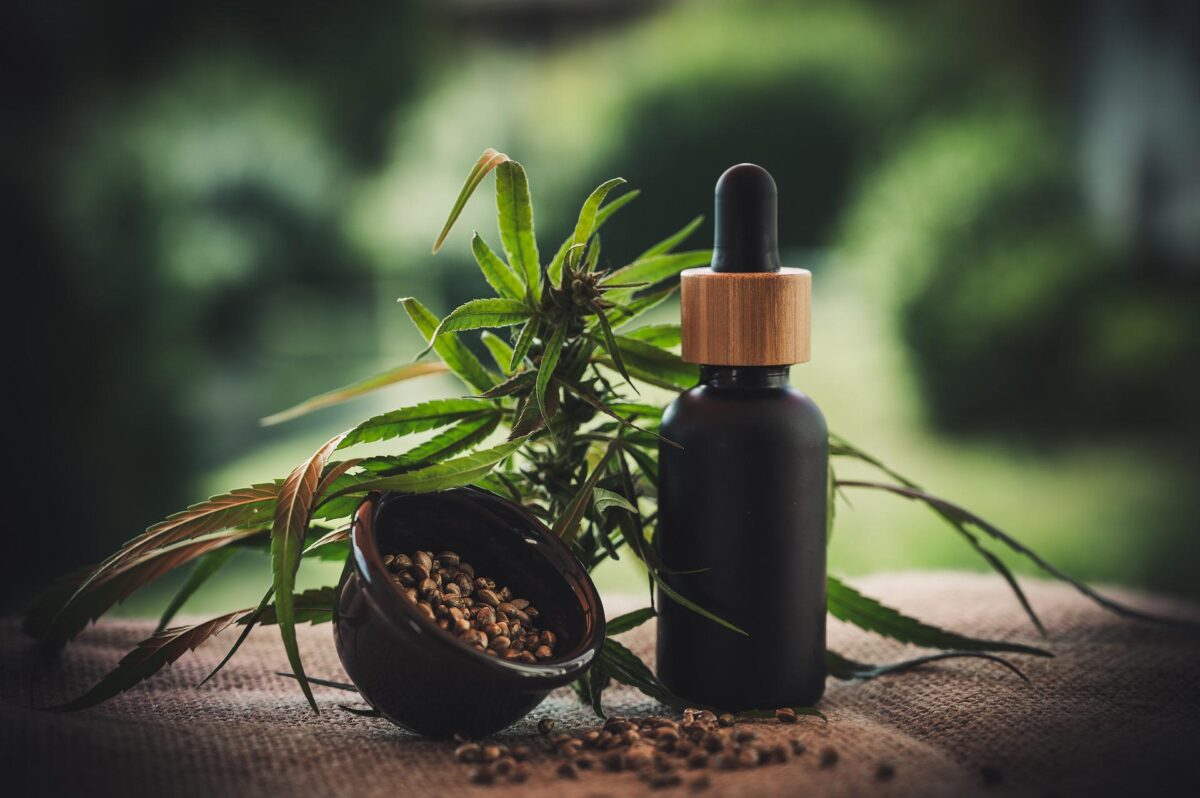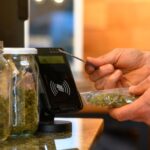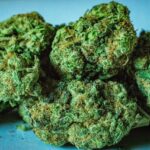
Common Compliance Questions for Hemp and CBD Operators
Though hemp and CBD operators do not need to follow the same stringent regulations as cannabis businesses, there are still many legal restrictions that these operators must comply with.
Check out this Hemp and CBD Compliance FAQ for all the answers to your hemp and CBD questions!
What are the rules around interstate commerce? National import/export rules?
USDA regulates the importation of all seeds for planting to ensure safe agricultural trade. Hemp seeds can be imported into the United States from Canada if accompanied by either:
- A phytosanitary certification from Canada’s national plant protection organization to verify the origin of the seed and confirm that no plant pests are detected; or
- A Federal Seed Analysis Certificate (SAC, PPQ Form 925) for hemp seeds grown in Canada.
Hemp seeds imported into the United States from countries other than Canada may be accompanied by a phytosanitary certificate from the exporting country’s national plant protection organization to verify the origin of the seed and confirm that no plant pests are detected.
Accordingly, since importation of seed is covered under USDA Animal and Plant Health Inspection Service (APHIS) regulations, this rule does not further address hemp seed imports or exports.
For imports of hemp plant material, APHIS will have jurisdiction for any pest related issues if they arise.
Who regulates hemp/cbd market federally? What is the status of regulations?
Agricultural Marketing Service, USDA regulates federal hemp production.
What are the rules on testing and sampling?
May not test above 0.3% THC, or it is considered a federally illegal substance and must be destroyed immediately.
What is the licensing process? State vs Federal?
The Department of Agriculture (USDA) approves plans submitted by States and Indian Tribes for the domestic production of hemp. It also established a Federal plan for producers in States or territories of Indian Tribes that do not have their own USDA-approved plan.
The 2018 Farm Bill requires USDA to promulgate regulations and guidelines to establish and administer a program for the production of hemp in the United States. Under this new authority, a State or Indian Tribe that wants to have primary regulatory authority over the production of hemp in that State or territory of that Indian Tribe may submit, for the approval of the Secretary, a plan concerning the monitoring and regulation of such hemp production. For States or Indian Tribes that do not have approved plans, the Secretary is directed to establish a Departmental plan to monitor and regulate hemp production in those areas.
What is the definition of hemp?
As defined in the 2018 Farm Bill, the term “hemp” means the plant species Cannabis sativa L. and any part of that plant, including the seeds thereof and all derivatives, extracts, cannabinoids, isomers, acids, salts, and salts of isomers, whether growing or not, with a delta-9 tetrahydrocannabinol concentration of not more than 0.3 percent on a dry weight basis.
Delta-9 tetrahydrocannabinol, or THC, is the primary intoxicating component of cannabis. Cannabis with a THC level exceeding 0.3 percent is considered marijuana, which remains classified as a schedule I controlled substance regulated by the Drug Enforcement Administration (DEA) under the CSA.
What are the rules on shipping hemp and CBD products in the mail?
As a result of the 2014 Farm Bill, some products derived from industrial hemp are mailable under specific conditions, which include:
- A license from a state’s Department of Agriculture authorizing the licensee to produce industrial hemp; and
- The requirement that the tetrahydrocannabinol (THC) concentration of such hemp (or its derivatives) may not exceed a 0.3 percent limit.
What are the restrictions on hemp and cbd oil in food, tablets, sublinguals or beverages?
Although certain cannabis-derived compounds are generally prohibited to be added to food and dietary supplements, because of their status as pharmaceutical ingredients, the FDA has authority to issue a regulation allowing the use of such ingredients in food and dietary supplements. The FDA has stated that they are actively considering this issue. If the FDA does not provide clarity about their plans for future regulation of CBD, there will continue to be uncertainty and downward pressure on the CBD portion of the hemp market. This is important because the Hemp Business Journal estimates appear to assume that there are no prohibitions on adding CBD to consumer products. As a result, full realization of the benefits estimated here could be delayed pending regulatory certainty.
Accordingly, products containing cannabis and cannabis-derived compounds are subject to the same authorities and requirements as the FDA-regulated products containing any other substance.
What are the rules for hemp and CBD cultivation?
There are similar requirements that all hemp producers must meet. These include: Licensing requirements; maintaining information on the land on which hemp is produced; procedures for testing the THC concentration levels for hemp; procedures for disposing of non-compliant plants; compliance provisions; and procedures for handling violations.
Where can I get more information about these rules?
Bill Richmond – Chief, U.S. Domestic Hemp Production Program, Specialty Crops Program, AMS, USDA
- 1400 Independence Avenue SW, Stop 0237, Washington, DC 20250-0237
- Telephone: (202) 720-2491 / Fax: (202) 720-8938 / Email: William.Richmond@usda.gov
Patty Bennett, Director, Marketing Order and Agreement Division, Specialty Crops Program, AMS, USDA at the same address and phone number above or Email: Patty.Bennett@usda.gov.
Small businesses may request information on complying with this regulation by contacting Richard Lower, Marketing Order and Agreement Division, Specialty Crops Program, AMS, USDA
- 1400 Independence Avenue SW, STOP 0237, Washington, DC 20250-0237
- Telephone: (202) 720-2491 / Fax: (202) 720-8938, or Email: Richard.Lower@usda.gov.
What are the prices for hemp like?
High prices for hemp, driven primarily by demand for use in producing CBD, relative to other crops, have driven increases in planting. Prices for hemp products vary from source to source.
Prices for hemp fiber range from $0.07 per pound to $0.67 per pound, and prices for hemp grain or seed range from $0.65 per pound to $1.70 per pound.
Prices for hemp flowers, in which concentrations of the cannabinoid cannabidiol, or CBD, are located, range from $3.50 to $30.00 per pound or more, depending on the CBD content. Producer interest in hemp production is largely driven by the potential for high returns from sales of hemp flowers to be processed into CBD oil.
From 2017 to 2018, the number of licensed producers of hemp more than doubled to reach 3,543 producers.
Where are the USDA hemp FAQs?
https://www.ams.usda.gov/rules-regulations/hemp/questions-and-answers
Resources/References:
https://nifa.usda.gov/industrial-hemp
https://www.ams.usda.gov/rules-regulations/hemp/rulemaking-documents
https://www.ams.usda.gov/rules-regulations/hemp/information-laboratories
How Can Point Seven Group Help?
The team of cannabis consultants and professionals at Point Seven Group have worked extensively in the U.S. and international cannabis markets and are familiar with the unique challenges of the cannabis industry. Follow us on social media to stay up to date with more cannabis industry updates!
- Wayzata moves to open city-run weed dispensary
 The City of Wayzata is considering opening its own recreational cannabis dispensary sometime next year. On Tuesday, Wayzata’s City Council and mayor approved a contract with Colorado-based consulting firm Point7 to draft a business plan for the possible municipal dispensary. This would be the city’s …
The City of Wayzata is considering opening its own recreational cannabis dispensary sometime next year. On Tuesday, Wayzata’s City Council and mayor approved a contract with Colorado-based consulting firm Point7 to draft a business plan for the possible municipal dispensary. This would be the city’s … - Indiana Cannabis Legalization: 2024 Update
 The Midwest has become a bustling hub for cannabis policy and industry, with states like Michigan, Illinois, and Ohio leading the charge in cannabis legalization. However, Indiana’s stance on cannabis remains a topic of significant interest and debate. As we delve into the status of …
The Midwest has become a bustling hub for cannabis policy and industry, with states like Michigan, Illinois, and Ohio leading the charge in cannabis legalization. However, Indiana’s stance on cannabis remains a topic of significant interest and debate. As we delve into the status of … - Cannabis Expungement and Social Equity: Proven & Failed Concepts
 In the realm of cannabis expungement and social equity, examining both proven and failed concepts is crucial for understanding the complexities of justice reform and equity within the cannabis industry. Proven concepts include initiatives such as automatic expungement processes, which streamline the clearance of certain …
In the realm of cannabis expungement and social equity, examining both proven and failed concepts is crucial for understanding the complexities of justice reform and equity within the cannabis industry. Proven concepts include initiatives such as automatic expungement processes, which streamline the clearance of certain …

